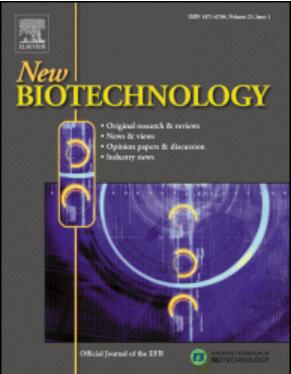Is human oversight to AI systems still possible?
IF 4.5
2区 生物学
Q1 BIOCHEMICAL RESEARCH METHODS
引用次数: 0
Abstract
The rapid proliferation of artificial intelligence (AI) systems across diverse domains raises critical questions about the feasibility of meaningful human oversight, particularly in high-stakes domains such as new biotechnology. As AI systems grow increasingly complex, opaque, and autonomous, ensuring responsible use becomes a formidable challenge. During our editorial work for the special issue “Artificial Intelligence for Life Sciences”, we placed increasing emphasis on the topic of “human oversight”. Consequently, in this editorial we briefly discuss the evolving role of human oversight in AI governance, focusing on the practical, technical, and ethical dimensions of maintaining control. It examines how the complexity of contemporary AI architectures, such as large-scale neural networks and generative AI applications, undermine human understanding and decision-making capabilities. Furthermore, it evaluates emerging approaches—such as explainable AI (XAI), human-in-the-loop systems, and regulatory frameworks—that aim to enable oversight while acknowledging their limitations. Through a comprehensive analysis, the picture emerged while complete oversight may no longer be viable in certain contexts, strategic interventions leveraging human-AI collaboration and trustworthy AI design principles can preserve accountability and safety. The discussion highlights the urgent need for interdisciplinary efforts to rethink oversight mechanisms in an era where AI may outpace human comprehension.
人类对人工智能系统的监督还有可能吗?
人工智能(AI)系统在不同领域的快速扩散引发了对有意义的人类监督可行性的关键问题,特别是在新生物技术等高风险领域。随着人工智能系统变得越来越复杂、不透明和自主,确保负责任的使用成为一项艰巨的挑战。在《生命科学中的人工智能》特刊的编辑工作中,我们越来越重视“人类的监督”这一主题。因此,在这篇社论中,我们简要讨论了人类监督在人工智能治理中不断演变的作用,重点关注维持控制的实践、技术和道德层面。它研究了当代人工智能架构的复杂性,如大规模神经网络和生成式人工智能应用,如何破坏人类的理解和决策能力。此外,它还评估了新兴的方法,如可解释的人工智能(XAI)、人在循环系统和监管框架,这些方法旨在实现监督,同时承认其局限性。通过全面分析,我们发现,虽然在某些情况下,完全的监督可能不再可行,但利用人类与人工智能协作和可信赖的人工智能设计原则的战略干预可以保持问责制和安全性。讨论强调了在人工智能可能超过人类理解能力的时代,迫切需要跨学科的努力来重新思考监督机制。
本文章由计算机程序翻译,如有差异,请以英文原文为准。
求助全文
约1分钟内获得全文
求助全文
来源期刊

New biotechnology
生物-生化研究方法
CiteScore
11.40
自引率
1.90%
发文量
77
审稿时长
1 months
期刊介绍:
New Biotechnology is the official journal of the European Federation of Biotechnology (EFB) and is published bimonthly. It covers both the science of biotechnology and its surrounding political, business and financial milieu. The journal publishes peer-reviewed basic research papers, authoritative reviews, feature articles and opinions in all areas of biotechnology. It reflects the full diversity of current biotechnology science, particularly those advances in research and practice that open opportunities for exploitation of knowledge, commercially or otherwise, together with news, discussion and comment on broader issues of general interest and concern. The outlook is fully international.
The scope of the journal includes the research, industrial and commercial aspects of biotechnology, in areas such as: Healthcare and Pharmaceuticals; Food and Agriculture; Biofuels; Genetic Engineering and Molecular Biology; Genomics and Synthetic Biology; Nanotechnology; Environment and Biodiversity; Biocatalysis; Bioremediation; Process engineering.
 求助内容:
求助内容: 应助结果提醒方式:
应助结果提醒方式:


